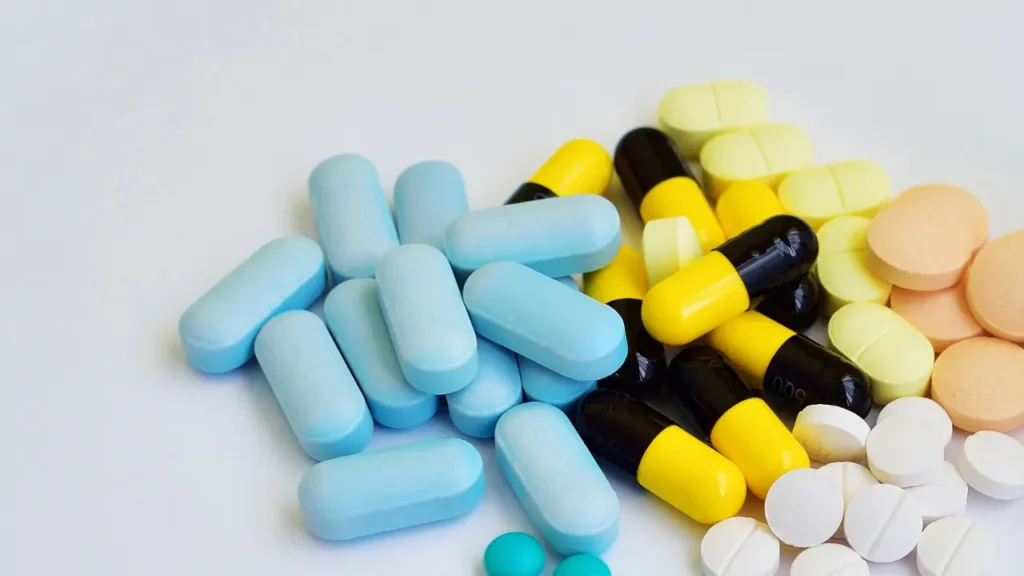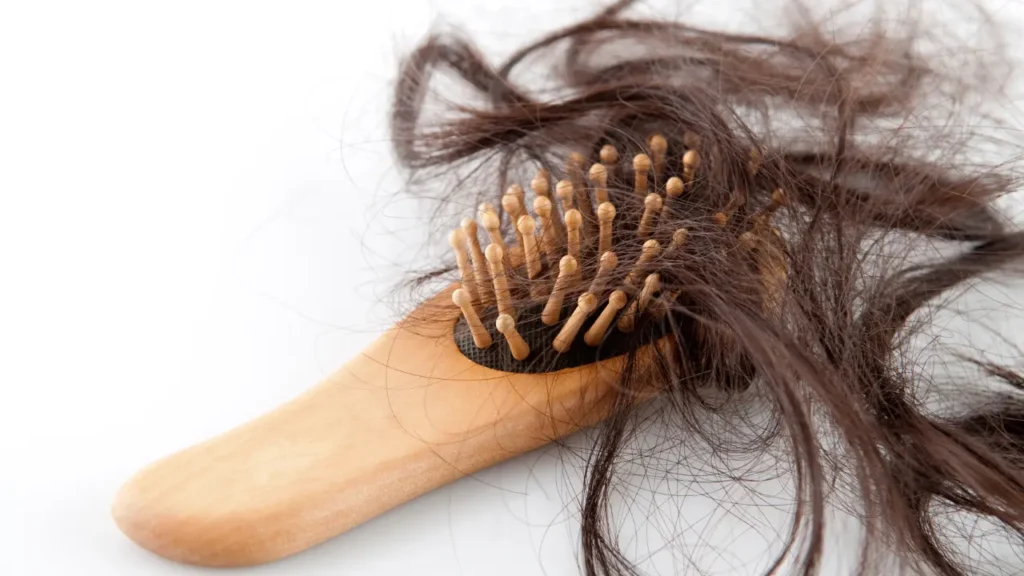Androstenediol is a naturally occurring steroid hormone and a prohormone of testosterone. It is also known by the names androst-5-ene-3beta and 17beta-diol. It is present in both humans and animals, and studies have shown that consuming it as a nutritional supplement has numerous positive health effects. We will cover the nature of androstenediol, its health advantages, the best dosage, side effects, possible drug interactions, and other pertinent information in this article to assist readers in making an informed choice when thinking about using this supplement.
You May Also Like:
Willow Bark: Benefits, Dosage, Side Effects, Drug Interactions, And Other Important Information
Androstenediol: Benefits, Dosage, Side Effects, Drug Interactions, and Other Important Information is an original (NootropicsPlanet) article.
Nature of Androstenediol
Androstenediol belongs to the class of hormones known as androgenic steroids, which are involved in the emergence and maintenance of male traits. It is created from testosterone by the conversion of a single double bond and shares structural similarities with testosterone, the main androgenic hormone in the body. The enzyme 3β-hydroxysteroid dehydrogenase mediates this conversion.
In addition to being created in the gonads and adrenal glands, androstenediol can also be found in small amounts in a variety of foods, including dairy products, meat, and some plants. Additionally, it can be created in a lab to be used as a dietary supplement.
Health Benefits of Androstenediol
Supplementing with androstenediol is believed to bring different positive health effects. Increased strength and muscle mass are two of its most well-known advantages. This is because of its capacity to raise the body’s testosterone levels, which directly affect the growth and development of muscles.
Additionally, it has been discovered that androstenediol has a beneficial effect on bone density, which is crucial for avoiding osteoporosis and lowering the risk of fractures. Androstenediol has also been demonstrated to have a favorable effect on cardiovascular health in general, including lowering the risk of heart disease and raising cholesterol levels.
Another advantage is that androstenediol supplementation can enhance cognitive function, especially memory and focus which is a result of raising the levels of of brain-derived neurotrophic factor (BDNF), a crucial protein for the health and function of the brain.

Chemistry of Androstenediol
It was previously described that androstenediol is a steroid hormone with structural similarities to testosterone. It is a prohormone of testosterone and is created by the enzyme 3-beta-hydroxysteroid dehydrogenase by converting a single double bond in testosterone.
Androstenediol is a chemical compound containing a 17-carbon skeleton, four cyclohexane rings, and a hydroxyl group at the 3-beta position. Androstenediol’s special structure enables it to attach to particular receptors in the body and cause several positive effects.
Physiological Mechanisms of Action of Androstenediol
Androstenediol’s physiological methods of action are not entirely understood, however, it is thought that it affects target tissues by attaching to androgen receptors. Male features are developed and maintained via androgen receptors, which are present in many tissues including muscles, bone, and the brain.
Androstenediol stimulates a series of processes that cause the activation of genes related to the growth and development of muscles when it binds to androgen receptors. As a result, there is an increase in bone density, muscle mass, and strength.
Brain-derived neurotrophic factor (BDNF) is upregulated in the brain by androstenediol which enhances memory and concentration.
Furthermore, it has been discovered that androstenediol has a beneficial effect on cardiovascular health, including lowering the risk of heart disease and raising cholesterol levels. This is probably a result of androstenediol’s capacity to enhance insulin sensitivity and lessen inflammatory responses within the body.


Optimal Dosage of Androstenediol
Age, sex, and general health are only a few of the variables that influence the suitable dosage of androstenediol. For most people, a dose of 25–50 mg per day is regarded as safe and effective. To find the ideal dose for each person, it is crucial to start with a lower amount and progressively raise it over time.
It’s also crucial to remember that androstenediol shouldn’t be taken for prolonged periods of time without medical supervision. This is due to the fact that prolonged exposure to high quantities of androgens may have detrimental effects on health, such as an increased risk of prostate cancer and other conditions.
Side Effects of Androstenediol
Some people may have negative side effects from taking androstenediol supplements. Acne, hair loss, and a rise in body hair are some of the most typical adverse effects along with hostility and mood swings. It can also result in a drop in sperm count and fertility.
Menstrual abnormalities, an increase in facial and body hair, and a decrease in breast size can all be brought on by androstenediol supplementation in women. Long-term exposure to androgens can also raise the risk of developing breast cancer and other illnesses.
Potential Substance Interactions with Androstenediol
Numerous drugs and other substances can interact with androstenediol. It can raise the risk of bleeding by interacting with blood thinners like warfarin. Androstenediol can also interact with anti-androgens like flutamide and bicalutamide and lessen the potency of such drugs. Additionally, it may interact negatively with aromatase inhibitors like letrozole and anastrozole, raising the possibility of negative side effects.
Additionally, it’s crucial to remember that androstenediol and alcohol can interact to raise the risk of liver damage. It can also interact with coffee and raise the chance of side effects like heart palpitations and other negative effects.


Best Responsible Use of Androstenediol
In some nations, androstenediol is regarded as a prohibited substance, making it difficult to obtain without a prescription. Androstenediol is a dietary supplement that is governed by the Food and Drug Administration (FDA) in the United States even though it is not a controlled substance.
Androstenediol should be purchased from a reliable supplier to guarantee that it is of excellent quality and devoid of impurities. As consuming too much can raise the chance of negative effects, people should adhere to the specified dosage and only use the medication as instructed.
Androstenediol:
Conclusion
In conclusion, the prohormone androstenediol is known for its potential role in testosterone production. While you might be drawn to this supplement which promises muscle growth and performance enhancement, you should also understand its potential risks and side effects. These may include long-term health effects such as hair loss, drop in sperm count or fertility, etc.
Thus, consulting with healthcare experts is the most responsible choice when comes to implementing supplemental routines. You should not use androstenediol as a replacement for a balanced diet. Instead, you should align your supplemental routine with a holistic lifestyle, balanced diet, and continuous exercise to enjoy the benefits of androstenediol.


References:
- Prohormones and Sport. Retrieved from: https://pubmed.ncbi.nlm.nih.gov/12650722/
- Anabolic-Androgenic Steroids and Testosterone Precursors: Ergogenic Aids and Sport. Retrieved from: https://pubmed.ncbi.nlm.nih.gov/15231229/
- Effect Of Dietary Supplements on Lean Mass and Strength Gains with Resistance Exercise: A Meta-Analysis. Retrieved from: https://journals.physiology.org/doi/full/10.1152/japplphysiol.00755.2002
Important Note: The information contained in this article is for general informational purposes only, and should not be construed as health or medical advice, nor is it intended to diagnose, prevent, treat, or cure any disease or health condition. Before embarking on any diet, fitness regimen, or program of nutritional supplementation, it is advisable to consult your healthcare professional in order to determine its safety and probable efficacy in terms of your individual state of health.
Regarding Nutritional Supplements Or Other Non-Prescription Health Products: If any nutritional supplements or other non-prescription health products are mentioned in the foregoing article, any claims or statements made about them have not been evaluated by the U.S. Food and Drug Administration, and such nutritional supplements or other health products are not intended to diagnose, treat, cure, or prevent any disease.
